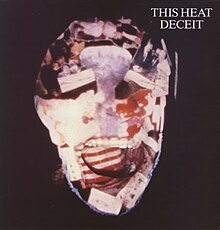
Head over Heels is the second studio album by Scottish alternative rock band Cocteau Twins. The album was released on 24 October 1983 through the label 4AD. It featured the band's signature sound of "Guthrie's lush guitars under Fraser's mostly wordless vocals" and is considered an archetype of early ethereal wave music.

Raw Power is the third studio album by American rock band the Stooges, released on February 7, 1973 by Columbia Records. The album departed from the "groove-ridden, feel-based songs" of the band's first two records in favor of a more anthemic hard rock approach inspired by new guitarist James Williamson, who co-wrote the album's eight songs with singer Iggy Pop. Pop produced the recording sessions himself and David Bowie assisted with post-production work, though the team were allotted only one day to mix the album and the resulting fidelity was poor. Later reissues have attempted to either correct or enhance the original mix, most notably Pop's 1997 remix, which became notorious for its extreme volume and compression.
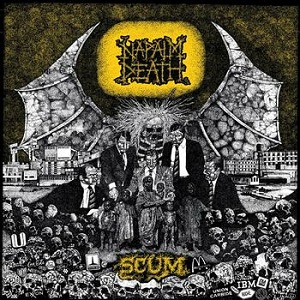
Scum is the debut studio album by English grindcore band Napalm Death, released on 1 July 1987 by Earache Records. The two sides of the record were recorded by two different lineups in sessions separated by about a year; the only musician in both incarnations was drummer Mick Harris. The two sides are very different, and the two taken together serve to bridge stylistic elements of heavy metal and punk rock. While the songs on the A-side are influenced heavily by hardcore punk and anarcho-punk, the vocals and lower-tuned electric guitars on the B-side anticipate subsequent developments in extreme metal. Loudwire put it in the list of the best 10 metal albums of 1987.

This Heat were an English experimental rock band, formed in early 1976 in Camberwell, London by multi-instrumentalists Charles Bullen, Charles Hayward and Gareth Williams.

Songs About Fucking is the second and final full-length studio album by the punk rock band Big Black, released in 1987 by Touch and Go Records, and reissued in 2018. The album includes a rendition of Kraftwerk's "The Model" in a remixed version from that which appeared on Big Black's then-recent single. The compact disc of Songs About Fucking added the other side of that single, a cover of Cheap Trick's "He's a Whore".

The Sound were an English post-punk band, formed in South London in 1979 and dissolved in 1988. They were fronted by Adrian Borland, and evolved from his previous band, the Outsiders.
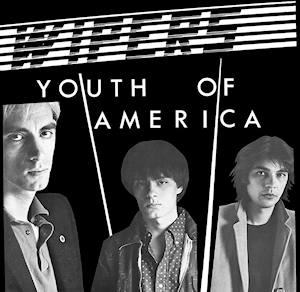
Youth of America is the second studio album by American punk rock band Wipers. It was released in 1981 by record label Park Avenue.

Over the Edge is the third studio album by American punk rock band Wipers, released in 1983.

Charles Hayward is an English drummer and was a founding member of the experimental rock groups This Heat and Camberwell Now. He also played with Mal Dean's Amazing Band, Dolphin Logic, and gigged and recorded with Phil Manzanera in the group Quiet Sun project as well as a short stint with Gong. He was a session musician on The Raincoats' second album, Odyshape, and on one occasion played drums for the anarchist punk band Crass. Since the late 1980s, Hayward has released several solo projects and participated in various collaborations, most notably Massacre with Bill Laswell and Fred Frith.

Lo-fi is a music or production quality in which elements usually regarded as imperfections in the context of a recording or performance are present, sometimes as a deliberate choice. The standards of sound quality (fidelity) and music production have evolved over the decades, meaning that some older examples of lo-fi may not have been originally recognized as such. Lo-fi began to be recognized as a style of popular music in the 1990s, when it became alternately referred to as DIY music. Some subsets of lo-fi music have become popular for their perceived nostalgic and/or relaxing qualities, which originate from the imperfections that define the genre.

Real to Real Cacophony is the second studio album by Scottish rock band Simple Minds. It was released on 23 November 1979 through record labels Zoom and Arista.
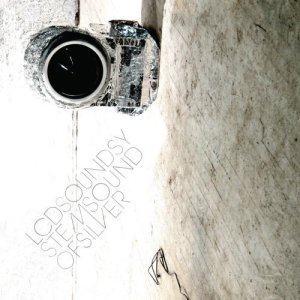
Sound of Silver is the second studio album by American rock band LCD Soundsystem. The album was released jointly through DFA and Capitol Records in the United States and EMI elsewhere, first on March 12, 2007, in the United Kingdom. Sound of Silver was produced by the DFA and recorded during 2006 at Long View Farm in North Brookfield, Massachusetts and DFA Studios in New York City, New York.
Camberwell Now were an English avant-prog band from London, formed in 1982 after the demise of This Heat.

This Heat is the debut studio album by English experimental rock band This Heat. Recorded between 1976 and 1978, it was released in September 1979 by record label Piano.
Gareth Williams was a British musician best remembered as the bassist and vocalist for the experimental rock group This Heat.

Health and Efficiency is an EP by English experimental rock band This Heat. It was released in 1980 by record label Piano.
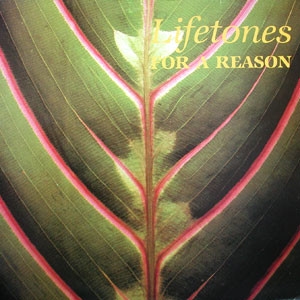
For a Reason is the sole studio album by English duo Lifetones, consisting of This Heat's Charles Bullen and his then-neighbour Julius Cornelius Samuel. It was released in 1983 under the Tone of Life imprint, and was later reissued in 2016 by Light in the Attic Records. The album - recorded in Cold Storage - combines post-punk and dub with a range of different stylistic influences from world music. Intended as a reaction against “the culture of death that was around” at the time, the album is also far more positive in comparison to Bullen's work with This Heat; its "koanic" and "ephemeral" lyrics subverting common linguistic cliches and tropes through repetition.

Human Story 3 is a studio album by American electronic musician James Ferraro, self-released on June 14, 2016. Displaying a turn towards the style and aesthetic of modern classical, the album's concept revolves philosophically and structurally on how technology that can be used meaningfully is often used less usefully for commerce and, as a result, how the technology may eventually end up subverting humanness. The record garnered critical acclaim and landed at number seven on Tiny Mix Tapes' year-end list of the best albums of 2016.

Radiator Hospital is an American indie rock band. Though songwriter Sam Cook-Parrott (vocals/guitar) is from Grand Rapids, Michigan, they are now based in Philadelphia. The rest of the current lineup is Cynthia Schemmer (guitar/vocals), Jon Rybicki (bass), and Jeff Bolt (drums). They have released six albums; two out of print lo-fi cassettes, and four LPs put out by Salinas Records.

Made Available: John Peel Sessions is a 1996 compilation of tracks by the band This Heat. Culled from two live John Peel Radio 1 sessions, the tracks were originally recorded and broadcast in 1977.
